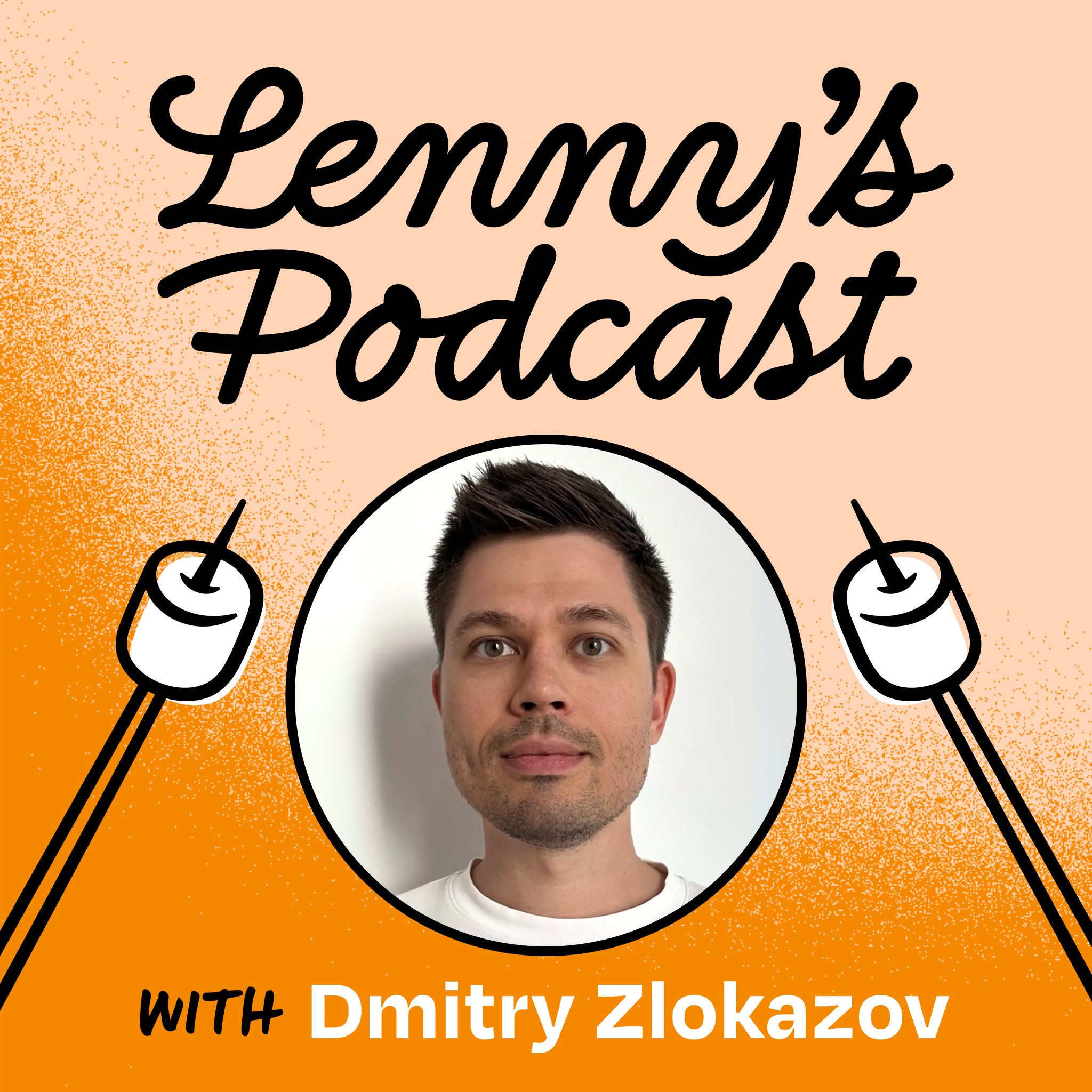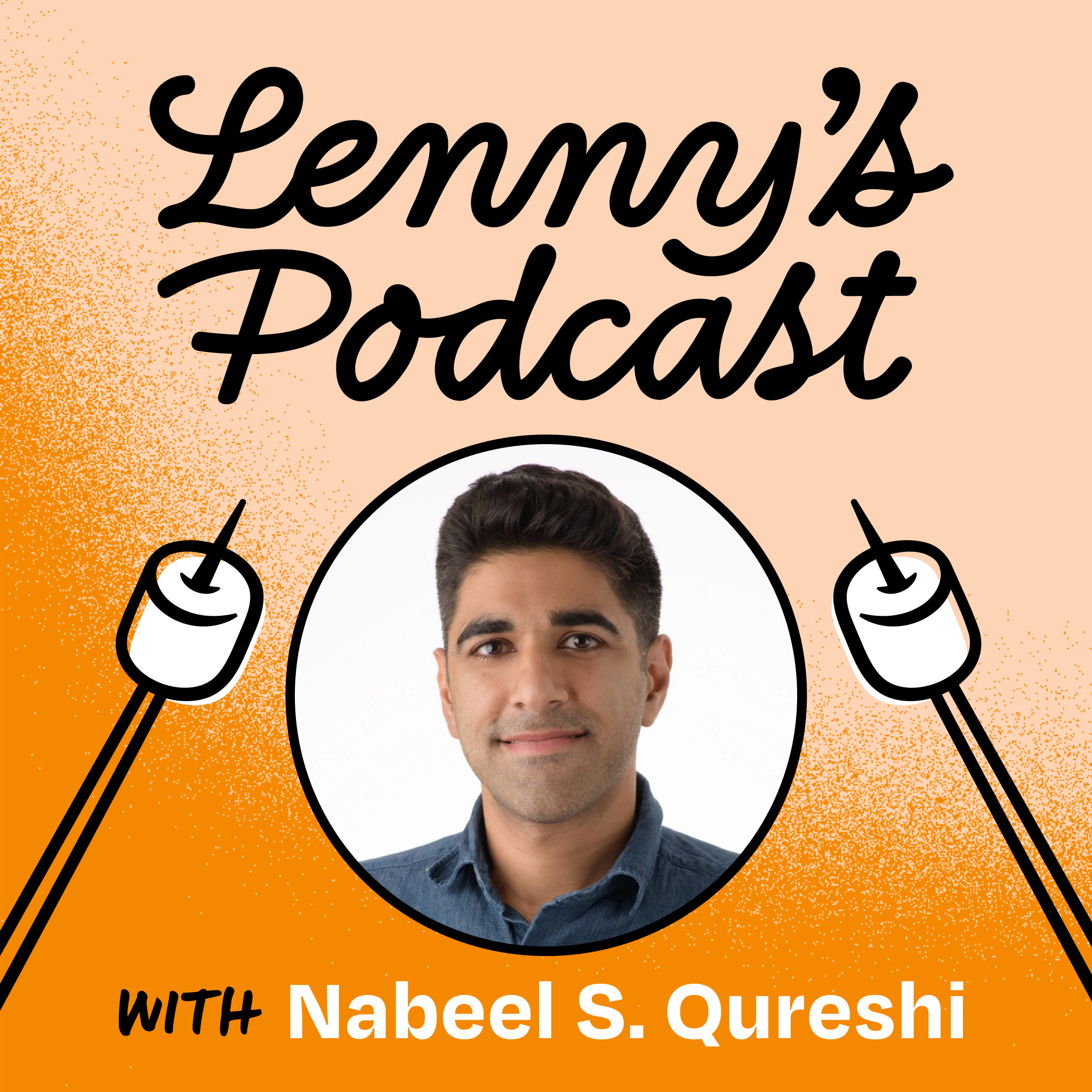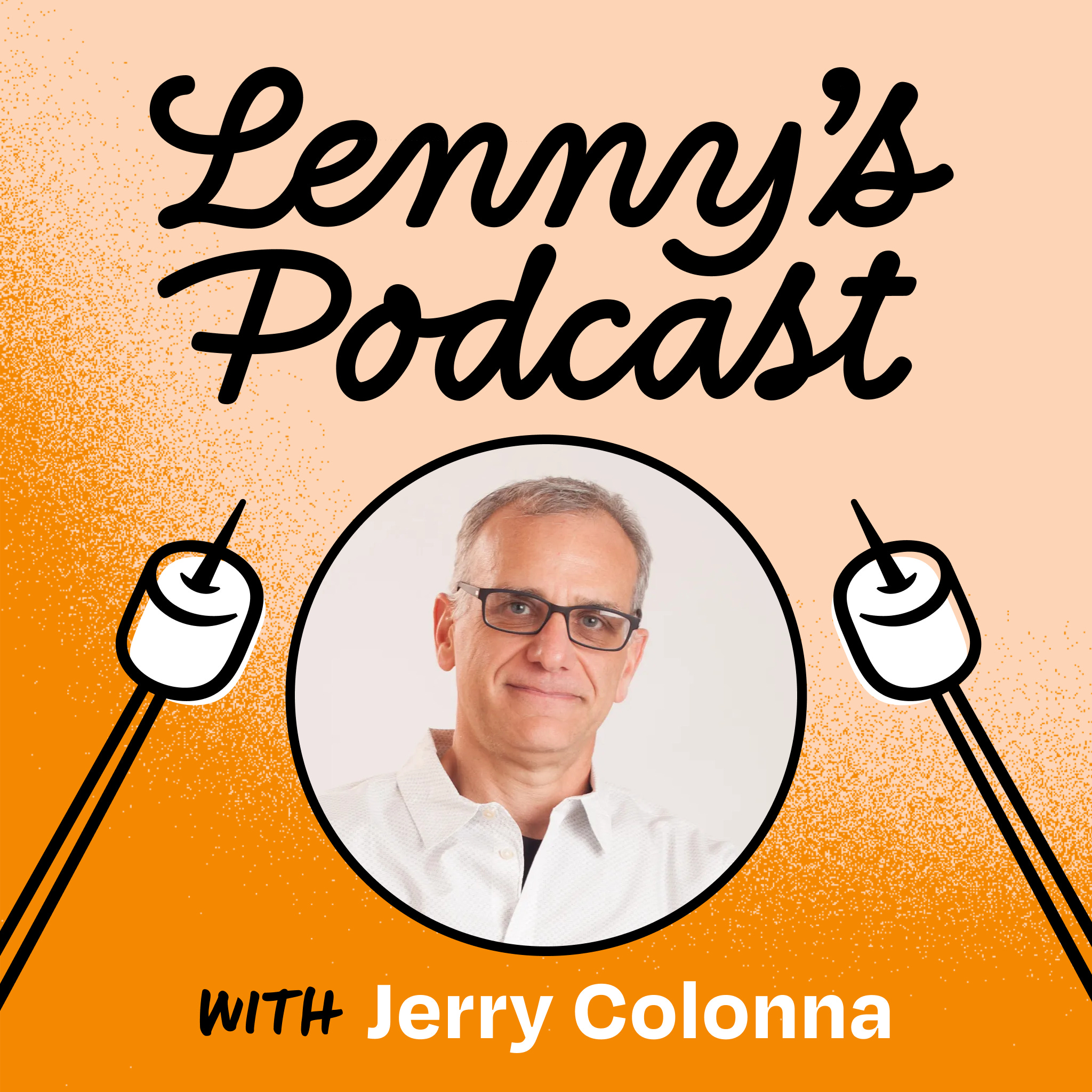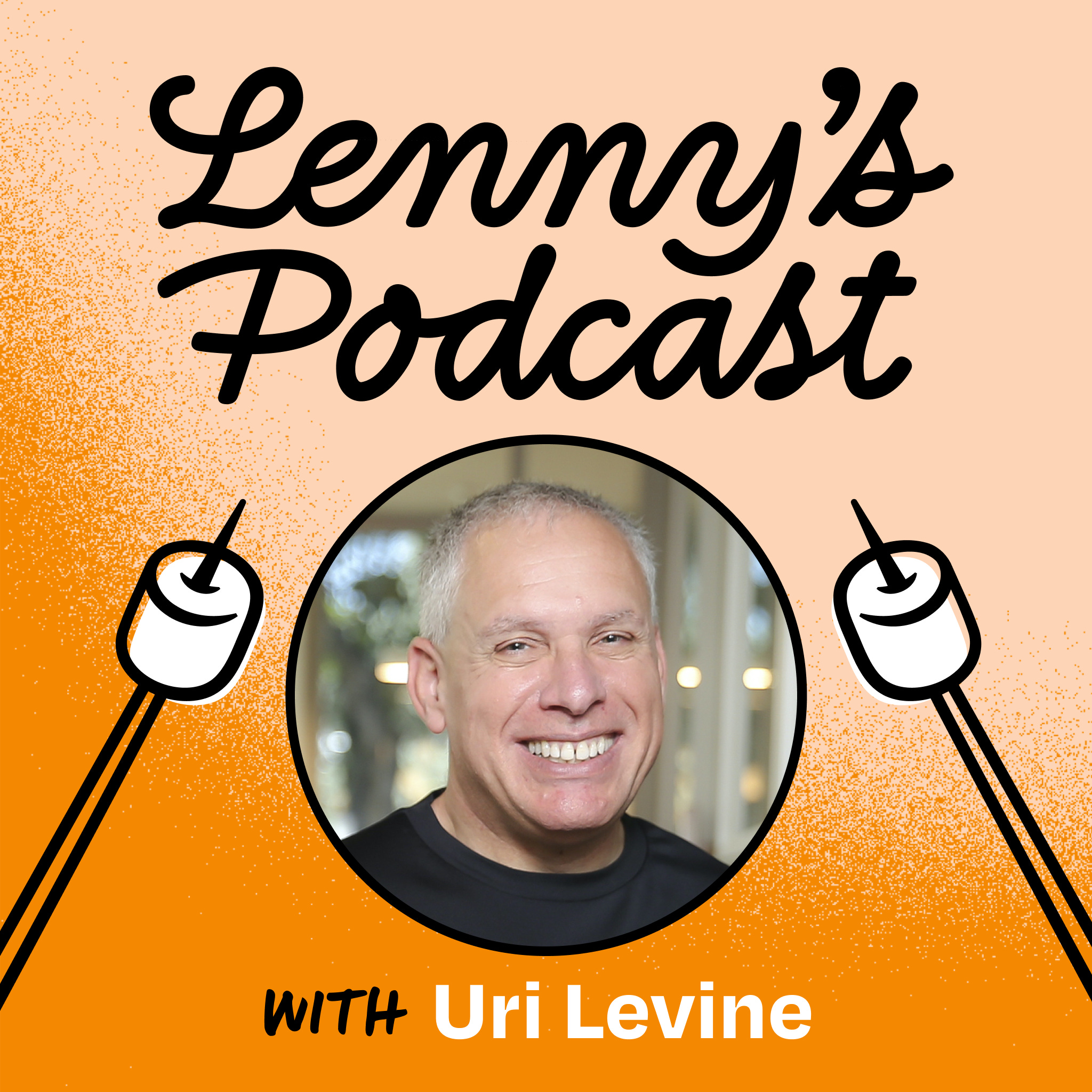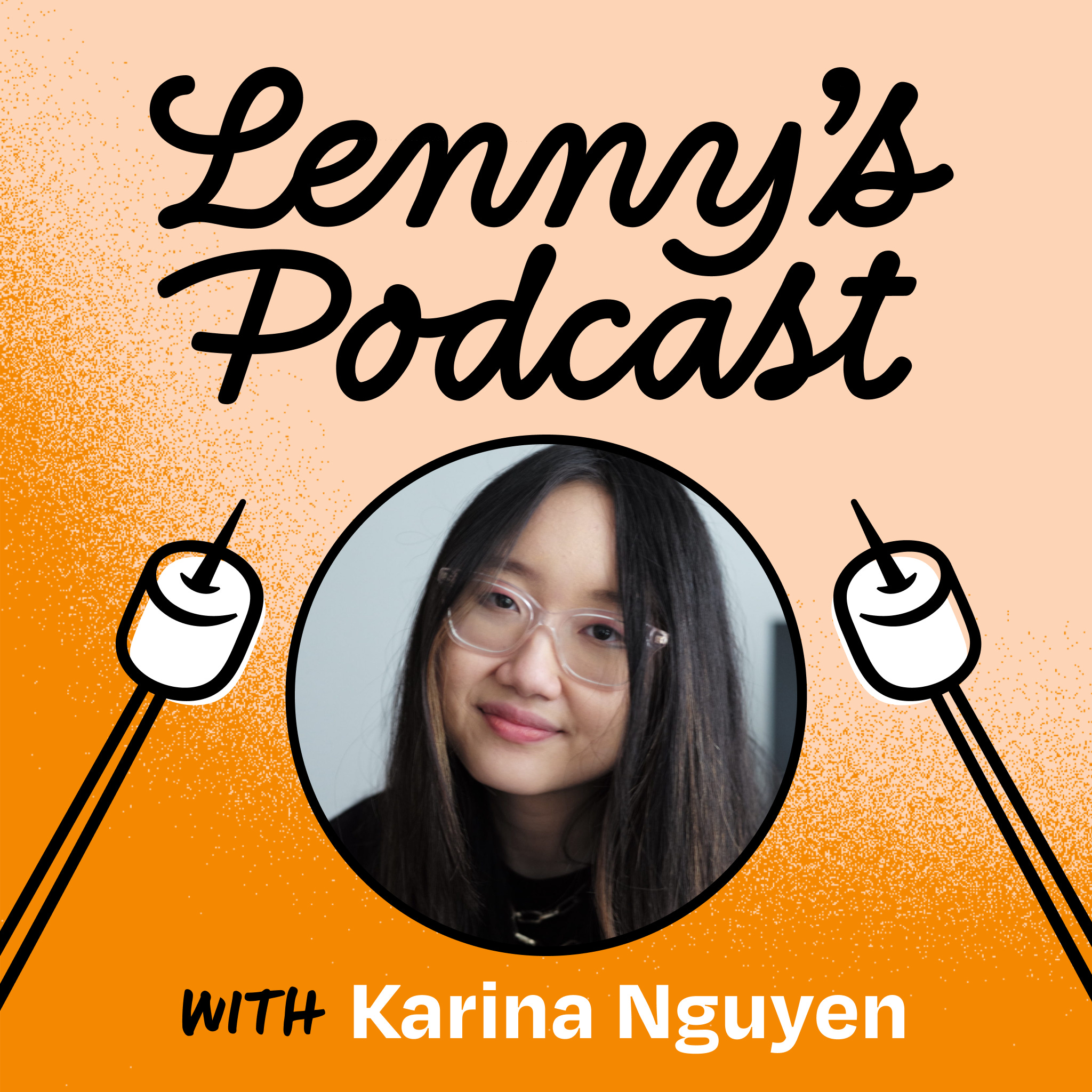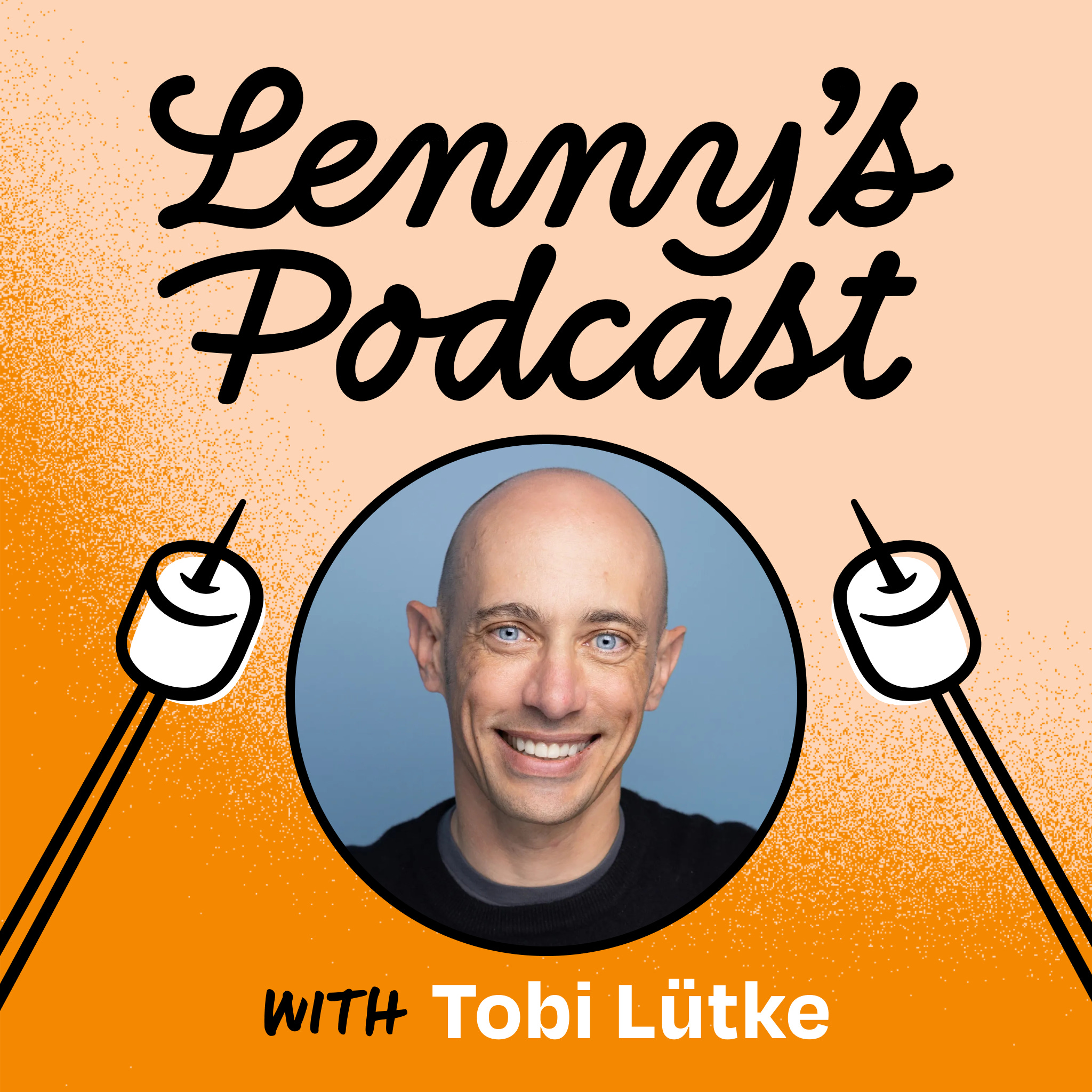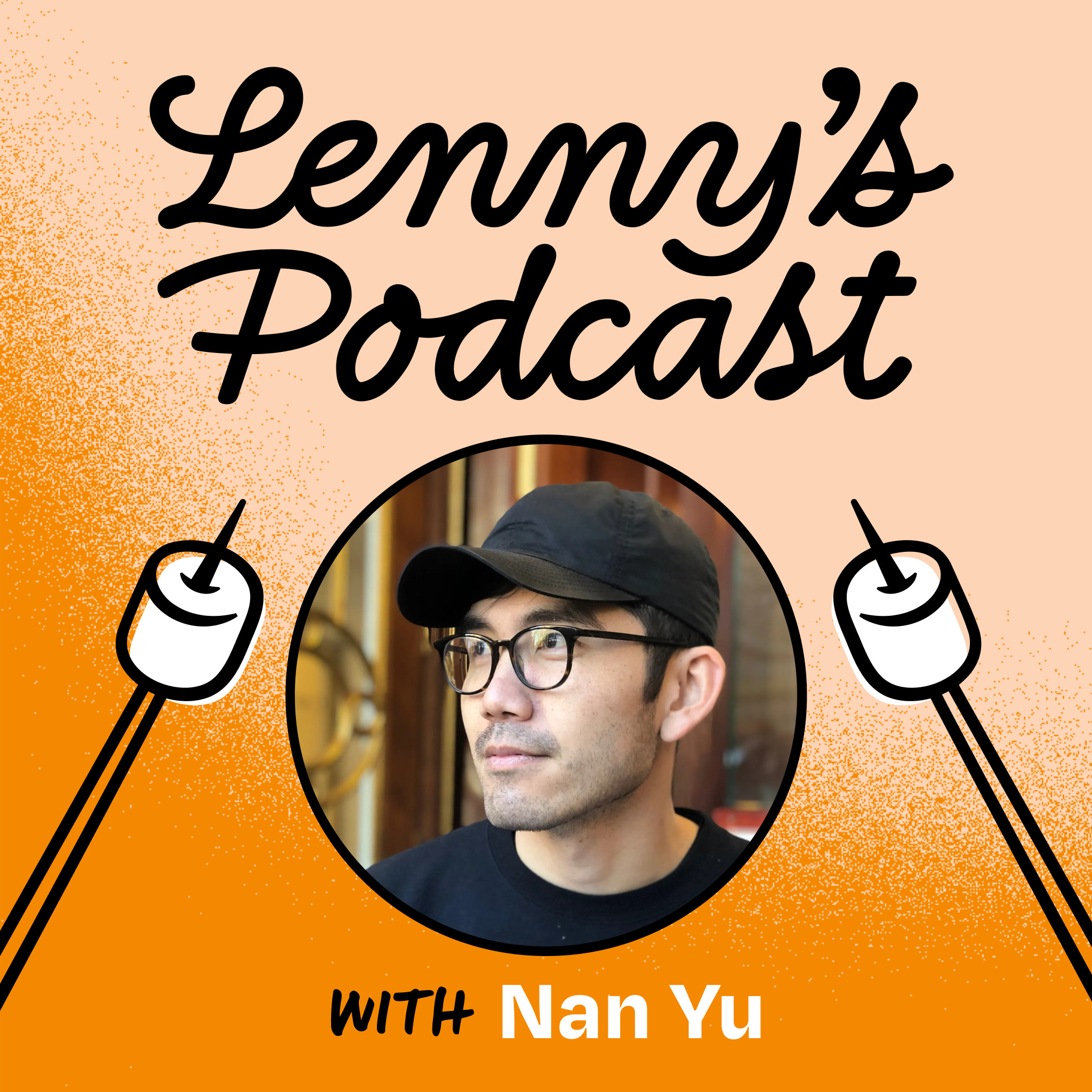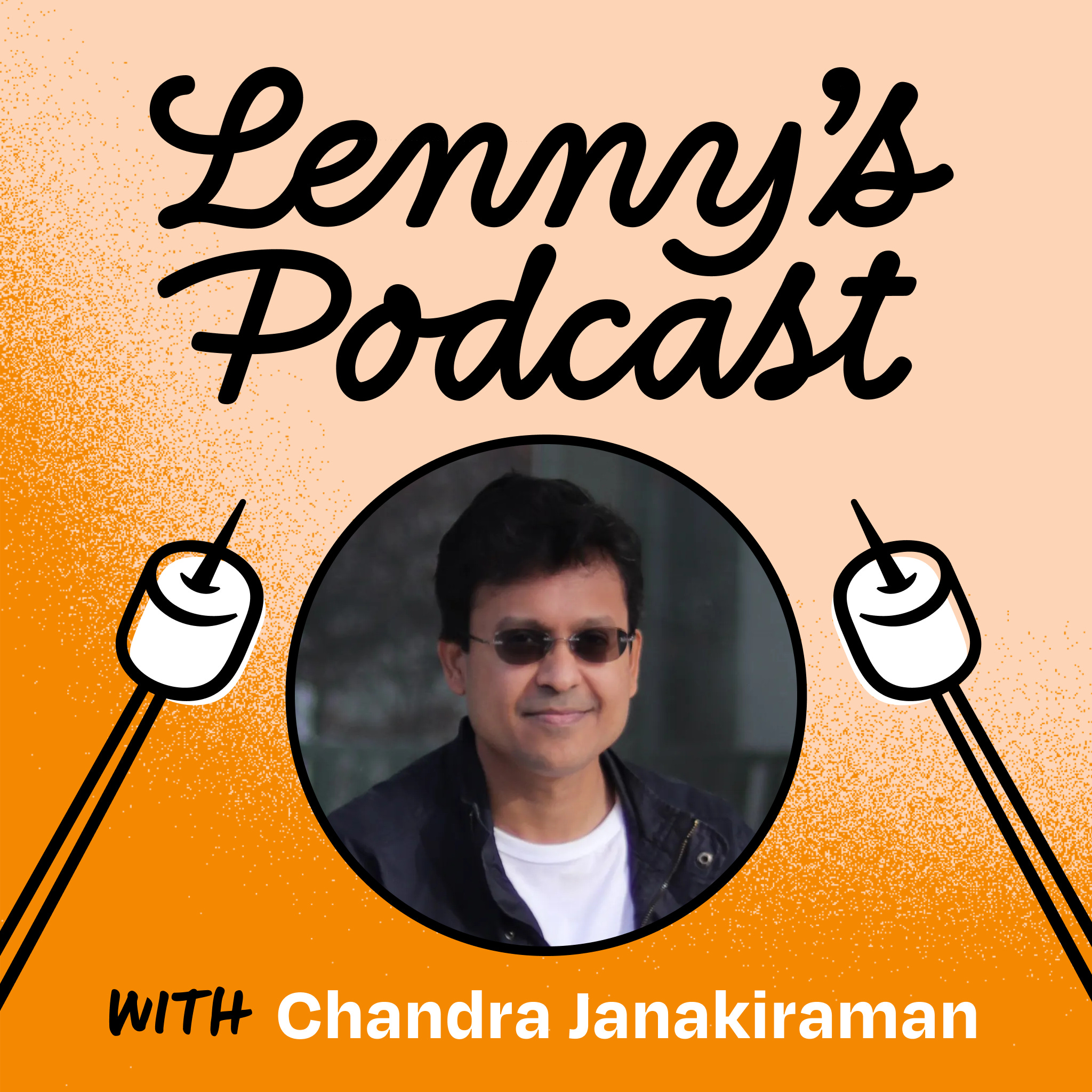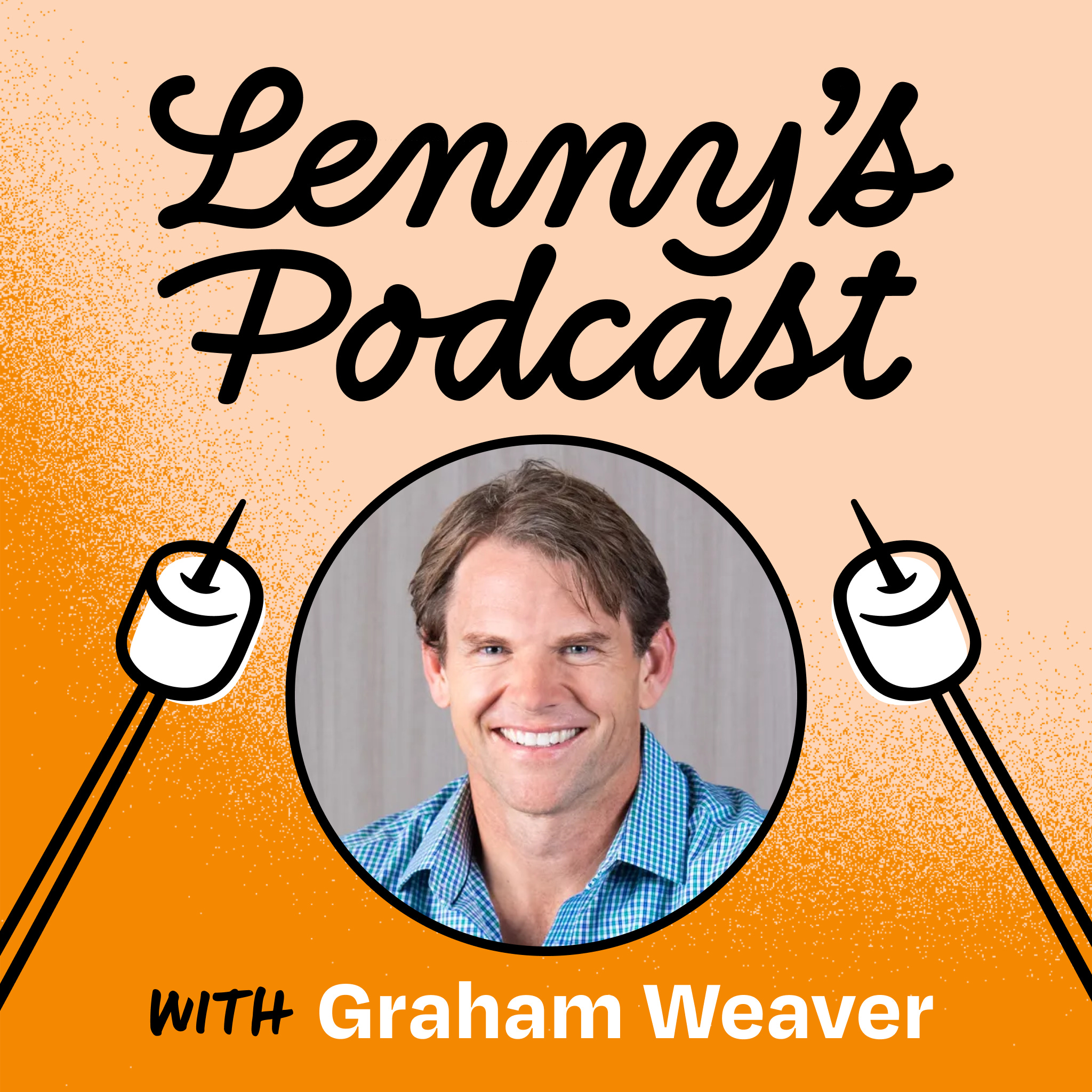
March 17, 2024 • 1hr 9min
The happiness and pain of product management | Noam Lovinsky (Grammarly, Facebook, YouTube, Thumbtack)
Lenny's Podcast: Product | Growth | Career
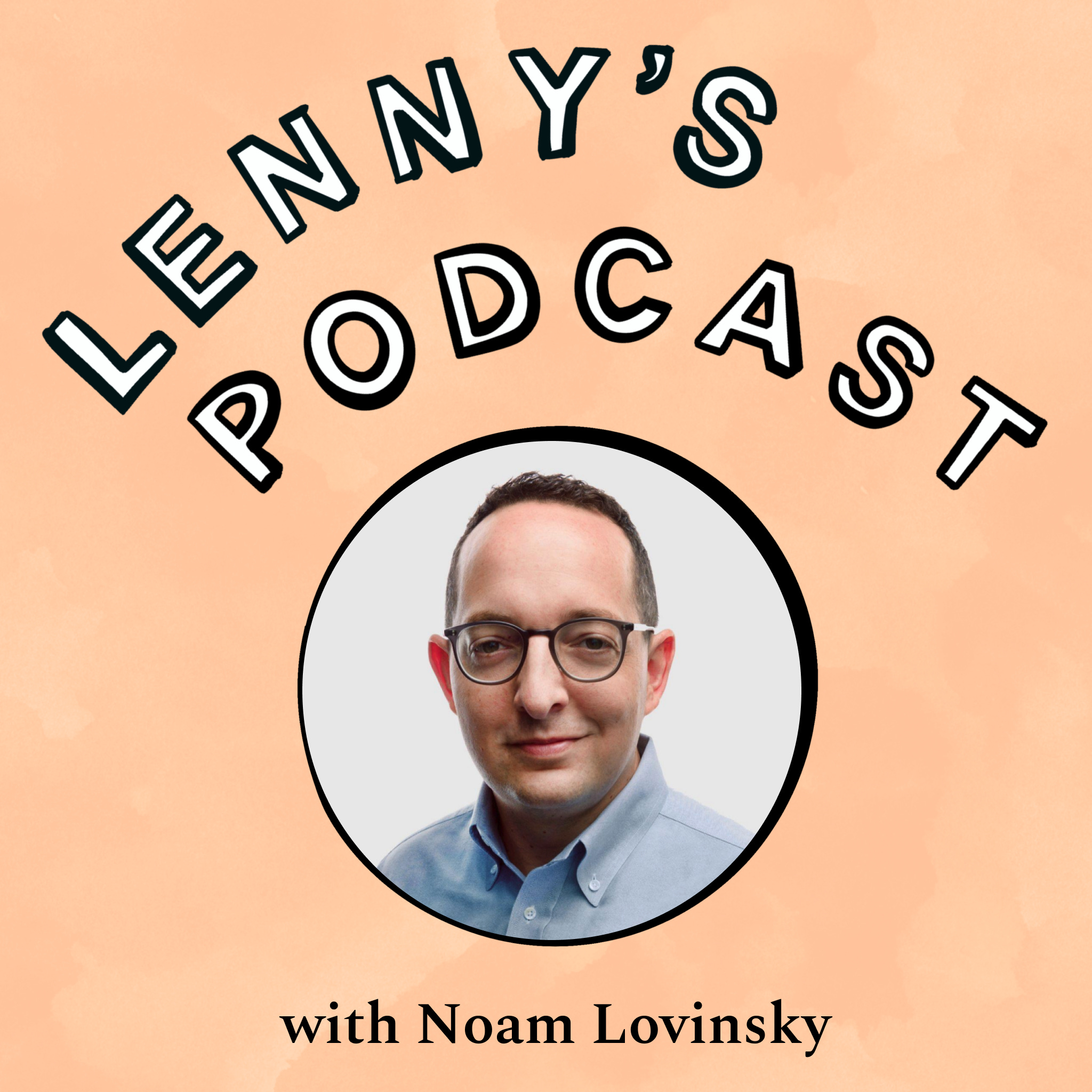
Key Takeaways
- Advocate for what's best for the business, even if it means killing your own project or taking a step back in your role. This shows you're prioritizing the company's success over your own ego.
- Diversify growth channels to avoid overreliance on a single source of users/customers. This provides resilience if one channel declines.
- When turning around a struggling business, get the entire leadership team involved in product strategy - not just product/engineering.
- For innovation labs within large companies, carefully design incentive structures and operating models that mimic startups. Standard corporate processes often stifle innovation.
- Successful consumer subscription businesses like Grammarly tend to be extremely scrappy, profitable from early on, and bootstrap rather than raise lots of funding.
- Seek out roles and projects that stretch you and catalyze growth, even if uncomfortable. But ensure you can leverage 1-2 existing strengths as a foundation.
- Focus on work that energizes you and aligns with your authentic interests. You'll likely excel more in areas you genuinely enjoy.
Introduction
Noam Lovinsky has had a distinguished career in product, leaving an indelible mark at Facebook, YouTube, Thumbtack, and currently as the chief product officer at Grammarly. In this episode, Noam shares insights from his diverse experiences, including:
- Helping revive growth at YouTube and Thumbtack
- Building Facebook's New Product Experimentation team
- Driving Grammarly's continued success as a rare consumer subscription business
- General career advice for product leaders
Notably, Noam has achieved tremendous success while maintaining a very low public profile - rarely tweeting or appearing on podcasts. His wisdom comes from deep hands-on experience rather than self-promotion.
Topics Discussed
Lessons from YouTube: Advocating for What's Best for the Business (8:06)
Noam joined YouTube through an acquisition of his startup. Early on, he made the unconventional choice to advocate for shutting down his own project, recognizing it wasn't the best use of resources for YouTube overall.
- Key lesson: In healthy organizations, advocating for what's truly best for the business (even at your own expense) is often rewarded.
- Example: "I don't think we should be putting 50 engineers on this project. Looking at the rest of the roadmap and the rest of the priorities, I think this team would likely be better served elsewhere, even though that was likely negotiating my way out of a job."
This led to Noam being given leadership of YouTube's creator focus area, reporting directly to the CEO. However, he soon realized he was struggling in the role and made another unconventional choice:
- He asked to be "layered" under another leader (Hunter Walk) to get more support and do better work.
- This humble move paid off, allowing Noam to learn and grow tremendously.
Prioritizing What's Best for the Business (14:31)
Noam emphasizes that a key part of being an effective product leader is thinking holistically about what's best for the business, not just your specific team or goals:
- Look beyond just user needs or team goals to consider the broader business strategy and priorities
- Be willing to make tough tradeoffs that may negatively impact your area but benefit the company overall
- Establish guiding principles to help navigate ambiguous decisions
"Ideally things that are best for the customer, there's high overlap with that, with things that are best for the business but not always right. And I think figuring out some principles that help kind of guide those sorts of conflicts can be really, really helpful."
Knowing When It's Time to Kill a Project (19:37)
Noam shares his perspective on the difficult decision of when to shut down a struggling project:
- Key factor is team stamina and motivation - when energy and excitement wanes, it may be time to move on
- Need to balance resilience with recognizing when it's time for a change
- "The reality is that what kills most projects, most early companies, is stamina."
Lessons from Thumbtack: Diversifying Growth Channels and Overcoming Challenges (21:47)
At Thumbtack, Noam helped turn around negative growth by:
- Diversifying growth channels beyond just SEO
- Rebuilding core product loops to reduce friction
- Changing the monetization model
Key lessons:
- Danger of single-channel dependency: "SEO is a live by the sword, die by the sword channel of growth. And I think that one channel growth company is always a no no."
- Growth masks problems: Rapid growth can hide underlying issues that become apparent when growth slows
- Value of experiencing both growth and decline: "I think as a PM, if you've only ever worked on things that grow and you've never felt the other side of that and how to kind of help turn that around with your team, I think you lose a lot in your career if you don't experience that."
How Thumbtack Turned Growth Around (26:24)
Noam details the key changes that helped revive Thumbtack's growth:
- Diversified growth channels beyond just SEO
- Rebuilt core product experience to reduce friction:
- Moved from 24-hour wait time to instant quotes
- Changed monetization model to be fairer to service providers
- Recognized Thumbtack as a collection of micro-marketplaces rather than one large marketplace
"The main thing we did is to rebuild that whole loop, changed the monetization model, build a system where essentially pros could provide instant quotes."
Lessons from Thumbtack: Team Collaboration and Product Strategy (35:28)
Noam emphasizes the importance of cross-functional collaboration, especially during challenging times:
- Entire leadership team should be involved in product strategy, not just product/engineering
- Build relationships across functions before crises hit
- Product leaders should facilitate strategy discussions in a way that engages all functions
"No one can be a bystander on product strategy. Just because you've got product in your title doesn't mean you're the only one that should be thinking about product strategy."
Lessons from Facebook: Building the New Product Experimentation Team (38:38)
Noam helped build Facebook's New Product Experimentation (NPE) team to incubate new ideas. Key insights:
- Success metrics beyond just "next Instagram" - value in building innovation capabilities
- Allowed Facebook to experiment with small-scale launches - hard to do in main product
- Facilitated direct customer interactions - challenging in large orgs due to legal/privacy concerns
- Served as effective recruiting tool for entrepreneurial talent
Advice for Building a Startup Within a Startup (46:07)
For companies trying to foster internal innovation, Noam recommends:
- Carefully design incentive structures - standard corporate processes often misaligned
- Allow flexibility in tools/infrastructure - don't force use of legacy systems
- Consider separate hiring/team structure like Nike's innovation lab
"Smart, good people, even if they're not trying to, they end up gaming things towards the incentive system. And so think long and hard about that."
Lessons from Grammarly: Adapting to Changing User Needs and Building for the Masses (49:34)
On Grammarly's success as a rare consumer subscription business:
- Extremely easy to use and extract value - works across applications with minimal effort
- Meets users where they are - no workflow changes required
- Profitable from day one and bootstrapped for many years
- Intentionally stayed under the radar while growing to significant scale
"Grammarly is one of the few products where you just install it and it makes you better. You don't have to configure it, you don't have to manipulate it, you don't have to change anything about what you're doing."
The Resilience and Motivation of the Grammarly Team in Ukraine (56:56)
Noam shares his admiration for Grammarly's Ukraine-based team:
- Continue delivering impact despite ongoing war
- Work provides useful distraction from difficult circumstances
- Motivated by desire to build a generational Ukrainian tech company
General Career Advice (59:08)
Noam's key career recommendations:
- Prioritize growth and learning opportunities, even if uncomfortable
- Seek roles that stretch you but allow you to leverage 1-2 existing strengths
- Focus on work that energizes you and aligns with authentic interests
"I always try to prioritize putting myself in positions that are going to cause a lot of growth and learning. And growth and learning can be very painful. And you kind of got to be okay with that and go into that because on the other side of that pain, I think, is the promised land."
Conclusion
Noam Lovinsky's career journey offers valuable lessons for product leaders at all stages. His willingness to make unconventional choices - like advocating to shut down his own project or take a step back in title - demonstrates the importance of prioritizing what's truly best for the business over personal gain. His experiences turning around growth at companies like YouTube and Thumbtack highlight the need to diversify growth channels and be willing to rebuild core product experiences when necessary.
Perhaps most importantly, Noam emphasizes the value of seeking out roles and projects that catalyze personal growth, even when uncomfortable. By focusing on work that energizes you and aligns with your authentic interests, you're more likely to excel and make meaningful impact. His success while maintaining a low public profile also serves as a reminder that substance and results ultimately matter more than self-promotion in building a fulfilling product career.
